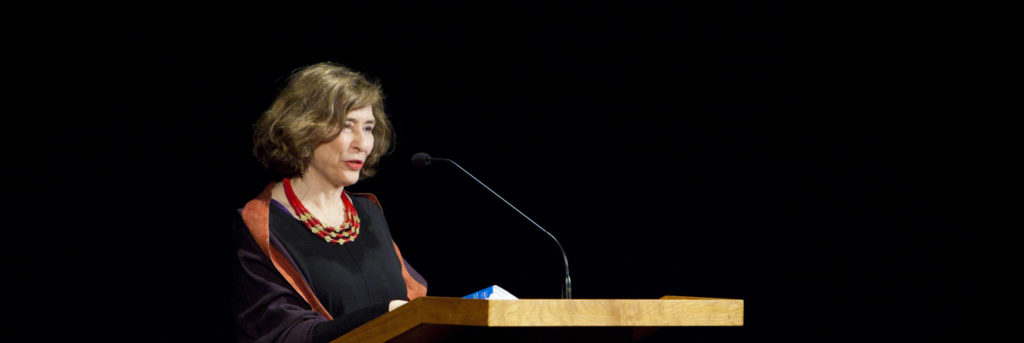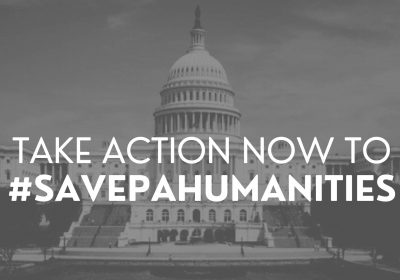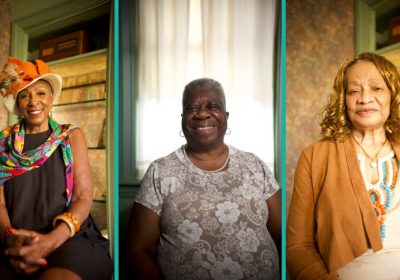The Pennsylvania Humanities Council was proud to present the dynamic opening speaker for the Pittsburgh Humanities Festival: Azar Nafisi, Iranian-American bestselling author of Reading Lolita in Tehran. Following a special introduction by Dr. William “Bro” Adams, chairman of the National Endowment for the Humanities, Nafisi treated a rapt audience to a discussion on the topic “Humanities & the Future of Democracies.”
Drawing on her experiences both in Iran and in the United States, Nafisi explored themes including the power of great works of art as a force against tyranny and the lasting relevance of the humanities.
“The humanities are essential to us in a very pragmatic sense,” she explained. “They remind us of our shared human struggle and allow us to deeply appreciate the voices and the hearts of others who are different from us, who exist in times and places we can only imagine. Democracy depends on that imagination.”
The March 26 event drew an audience diverse in age and background—a group clearly engaged by Nafisi’s warmth and enthusiasm. An extended session of questions and answers followed the talk.
“It would be hard to imagine a more fitting speaker for this event celebrating the humanities,” said PHC staff member Candace Clarke. “Azar Nafisi’s message is our message—that the humanities have a profound, real-world impact and can transform people’s lives.”
Ten years ago, Nafisi electrified readers with her memoir Reading Lolita in Tehran, a multi-million-copy bestseller that made a passionate case for the vital role of imagination—and great English and American novels in particular—in preserving the soul and combating the noxious ideology of a totalitarian society. In her new book, The Republic of Imagination, she turns her attention back to the democratic society that gave birth to these great novels and makes a passionate case for the vital role of fiction in society today.
Among key ideas in her Pittsburgh address, Nafisi emphasized the connection between individual imagination and shared liberty.
“I believe that no freedom—political, economic or social—can be realized without the freedom of imagination and thought,” she said. “It is this basic and most human form of freedom that both promises and safeguards all those other freedoms.”

![[color – dark bg] PA SHARP FINAL FILES DB 72dpi [color - dark bg] PA SHARP FINAL FILES DB 72dpi](https://pahumanities.org/uploads/files/elementor/thumbs/color-dark-bg-PA-SHARP-FINAL-FILES-DB-72dpi-phgl7aimtfdpzt2rscvl43ksfv3asbbls19lsvuacw.jpg)


